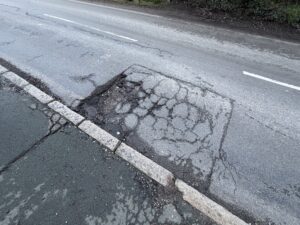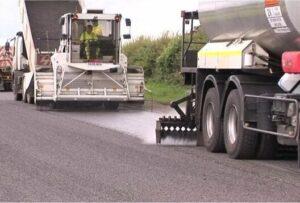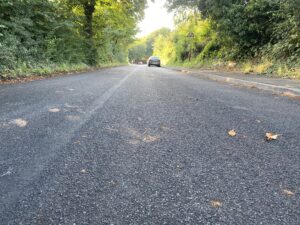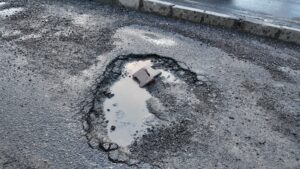The amount of time and money spent on reactive and structural maintenance programmes could be significantly reduced if councils were to continue to increase use of a wider range of surface treatments at the right time in the lifecycle of the network.
This was the message from Paul Boss, Chief Executive of the Road Surface Treatments Association (RSTA), who has been responding to the results of the 26th ALARM survey, published today.
He said, at a time when capital funding for maintenance is not being increased, this approach would also offer highway authorities added value and the chance to reduce the carbon associated with highway maintenance works even further. Even when longer term settlements are possible, the sustained used of surface treatments should be prioritised to ensure greater efficiency with least carbon generation, he added.
Mr Boss went on to say that by using cost effective surface treatments at the right time in the right way as part of a progressive and proactive asset management strategy, would reduce the need for more reactive approaches and help limit the amount of potholes that are formed in the first place, by preventing the deterioration of the road surface.
Regular use of different types of surface treatments would also enable councils to refocus their investments on the roads that need the most attention, while the ones that are in better condition, could be held in that state for even longer, he added.
“It is great to see that highways maintenance budgets were up on average by 15% last year. But, while more investment for local authorities to spend on maintenance would of course always be welcome, it isn’t just about the money,” said Mr Boss. “The ALARM survey notes that the increased number of potholes filled, is a reflection of the reduced investment in programmed work, which has resulted in poorer road conditions. Use of surface treatments as part of a toolbox of methods and treatments will help local roads from deteriorating, as well as keeping the roads in better condition for longer. Using the right treatments at the right time, backed up by available highways technology that provides more accurate detail on the road condition itself, would help the money that is available go further, for longer.”
The results of this year’s survey showed that average highway maintenance budgets were up by 15% on average in England last year although were below the levels reported in 2019. Welsh local authority budgets were up by 22% on average while London saw a small increase of 1.2%. As a result, more potholes were filled (13,298 for England) on average per local authority last year, with 3,967 filled on average in Wales and 2,634 in London.
The ALARM survey also highlighted the fact that local authorities have also worked harder to increase the number of sustainable products used. The percentage of councils responding to the survey revealed that 61% had used warm mix asphalt and 82% were using recycled materials and 33% were choosing materials with the lowest initial carbon footprint, alongside 85% selecting surfacing materials with longer life.
The survey said however, the bill to fix the backlog is still in excess of £10 billion, meaning on average, roads are resurfaced once every 68 years on average.
Commenting further, Mr Boss said there would always be a need for asphalt replacements, even if that is just as a surface course following ‘institu’ road recycling, but with the use of the right surface treatments, at the right time on roads in good and average condition, resurfacing roads every 68 years may not be a major issue. Where poor roads do have to be resurfaced with asphalt, low and medium temperature asphalts should be the road authorities default specified material. “The survey shows well over a third have not used them and I suspect very few specify them as a default, nearly 20 years after the industry made them more widely available and they are now well tried and tested. The road surface treatments sector and asphalt industry have made great improvements to their products for the benefit of the economy and the environment. It’s now up to asset managers and decision makers to fully embrace these if they are serious about efficiency and sustainability for the benefit of all,” said Mr Boss.
























